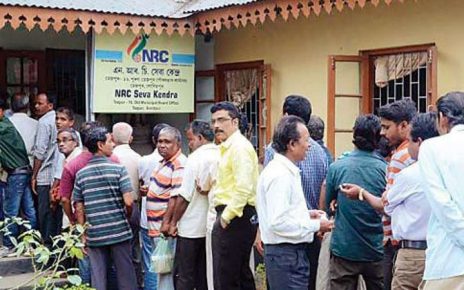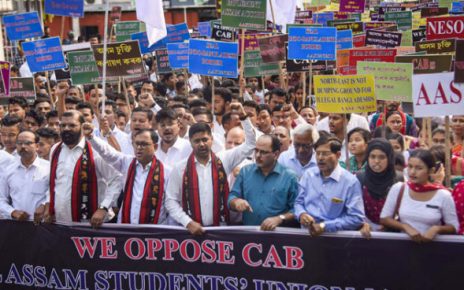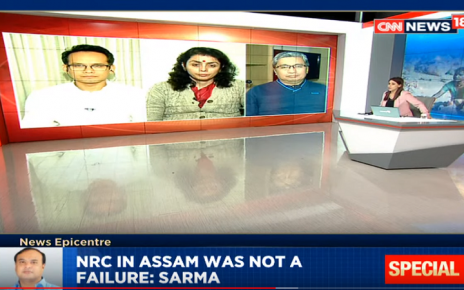The Hindu
Guwahati, August 31, 2019
A New Delhi-based rights group has termed the exclusion of 19,06,657 people from the Assam National Register of Citizens (NRC) as the largest incident of making people “stateless” in decades.
Sri Lanka’s 1948 declaration of about 9,75,000 descendants of Indian-origin Tamils as ‘non-nationals is the next largest purging move’, the Rights and Risk Analysis Group said on Saturday.
Myanmar’s decree under the 1982 citizenship law, making some 8,00,00 Rohingya stateless, the declaration of 4,00,000 Bihari Muslims as non-citizens in Bangladesh in 1971, and the expulsion of 3,90,000 Indian-origin people by Myanmar – then Burma – in 1964 are the other major cases of making people stateless in South Asia, the group said.
immediate arrest and imprisonment after they are declared as foreigners by the Foreigners’ Tribunals unless the orders of these tribunals are stayed or overturned by the Gauhati High Court or the Supreme Court,” group director Suhas Chakma said.
The narrative of the indigenous people being overrun by illegal immigrants was based on the migration from 1901 to 1971 when the State’s average decadal population growth rate of 23.95% was almost double the country’s 12.90%. “But those who came to India before March 24, 1971 have already been accepted as citizens of India as per the Assam Accord of 1985,” he said.
Watch | Assam’s NRC Final List is out
19 lakh people left out of Assam’s NRC Final List. What next?
Punished for lacking papers
The NRC was not about the identification of foreigners but a process to punish those who did not have documents of their own or of their forefathers to establish themselves as residents of Assam prior to March 24, 1971, he said.
“Assam had 66% illiterates as per the 1971 Census. This means these 66% did not possess an educational certificate that can be used as a birth certificate,” he said, adding that the poor, illiterate and landless people of 1971 or their descendants found it the toughest to prove their legacy.



